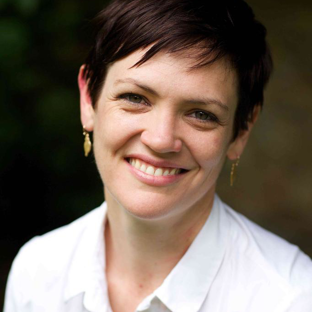In the last 20 years, the proportion of Australians who are obese has increased by almost 50%. That’s just one of many startling statistics revealing the extent of Australia’s obesity epidemic; an epidemic that’s putting an ever-increasing strain on the public purse.
It doesn’t help that there’s so much conflicting information and advice around exercise and nutrition. A recent cardiologist-led study claims exercise does not promote weight loss. Saturated fat used to be the enemy; now we’re demonising sugar and carbohydrates. Some health professionals now claim it’s possible to be overweight – even obese – and healthy. Food labelling, dieting fads, powerful lobby groups – it’s a minefield.
Australians living in regional locations and those in the most highly disadvantaged socioeconomic groups are more likely to be overweight or obese. But there are other factors that increase the likelihood of obesity, too, such as being Australian born and having English as a first language.
What is driving this epidemic and why is it affecting particular demographic groups more acutely? What are the health impacts of obesity – and how can it affect a person’s quality (and length) of life, employment, community participation? How does the fat acceptance movement relate to debates about public health, and how are myths about obesity perpetuated?
During this hour of audience Q&A, host Madeleine Morris is joined by Heart Foundation CEO Mary Barry, Stephanie Alexander Kitchen Garden Foundation CEO Ange Barry, fat studies academic Jenny Lee and researcher Michael Gard for a discussion of Australia’s unfolding obesity epidemic.
Featuring

Madeleine Morris
Madeleine Morris is a Melbourne-based reporter for ABC television’s 7.30. She was formerly a presenter for the BBC in London and reported from dozens of countries before returning to her native Australia. She is the author of Guilt-Free Bottle-Feeding: Why Your Formula-Fed Baby Can Grow Up To Be Happy, Healthy and Smart, published by Finch.

Mary Barry
Mary Barry was appointed as Chief Executive Officer of the National Heart Foundation in January 2014. Prior to this, Barry was the inaugural CEO of VAHEC, a peak body representing the interests of aged care providers and bush nursing centres and hospitals across the State, before taking on the role of CEO of Victorian State Emergency Service.

Ange Barry
Ange Barry is the Chief Executive Officer of the Stephanie Alexander Kitchen Garden Foundation. Ange joined Stephanie Alexander in August 2006 to manage the growth of the organisation and to pursue the Foundation goal of growing the Kitchen Garden Program. She has led the development of an incredibly successful, close-knit Foundation team, and has overseen the expansion of the Program from three Victorian schools in 2006 to over 800 schools across Australia in 2015. The lives of thousands of children and their families are now being enriched by this innovative, successful model of pleasurable food education.
Ange’s previous experience includes a career in regional management in the financial sector, instrumental management and leadership roles in the community sector, and ownership of a small business during her family years.
She has played a vital role in building the Government, corporate and community relationships that have fostered the rapid growth of the Kitchen Garden Foundation. The Foundation’s work is supported by all levels of government, including Health and Education Departments, and is referenced by health prevention bodies as a key contributor to promoting healthy behaviours in children and addressing the current childhood obesity crisis. The Kitchen Garden Program model attracts international interest from many other agencies, and Ange continues to mentor many organisations looking to the Foundation as a leader in food education for children. The Program is currently being replicated by Jamie Oliver’s Kitchen Garden Project, which is bringing a similar model to hundreds of schools across the UK.

Michael Gard
Michael Gard is associate professor of sport, health and physical education in the School of Human Movement and Nutrition Sciences at the University of Queensland. He teaches, researches and writes about how the human body is and has been used, experienced, educated and governed.
He is the author of four books including The Obesity Epidemic: Science, Morality and Ideology (2005) and The End of the Obesity Epidemic (2011). His work includes research projects into the science of obesity, the history of sport, and the sexual and gender politics of dance education.
He is currently the lead researcher in an Australian Research Council funded research project called 'Small technology, big data and the business of young people's health: an international investigation of the digitisation of school health and physical education'. This project is investigating the ways in which digital technology is being used to measure, monitor and make money out of children’s health at school.
With Carolyn Pluim from the University of Northern Illinois, he has recently completed a new book for Rowman & Littlefield about the historical and contemporary relationships between schools and public health policy. Amongst other things, this work considers the evolution of public health practice and policy in American schools as well as the ways in which contemporary health policies make schools and children increasingly available for corporate exploitation.

Jenny Lee
Jenny Lee is a Lecturer in Creative Writing, Literary Studies and Gender Studies at Victoria University in Melbourne. She researches in the interdisciplinary fields of Fat Studies and Creative Writing (often producing work that crosses into both disciplines).
Jenny supports Melbourne fat activism such as Aquaporko (fat synchronised swimming), VaVaBoomBah (fat burlesque) and A Plus Market (regular fat fashion events). Jenny has published and presented at conferences in Australia, New Zealand, the US, the UK, Spain, Portugal and Italy. She is currently focused on writing memoir and narrative non-fiction about the fat body.
Her most recent publications can be read in Queering Fat Embodiment (2014), The Politics of Size: Perspectives from the Fat Acceptance Movement (2015) and Fat Sex: New Directions in Theory and Activism (2015). Her articles can also be read online at the Conversation.
